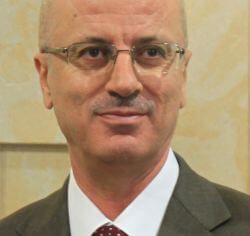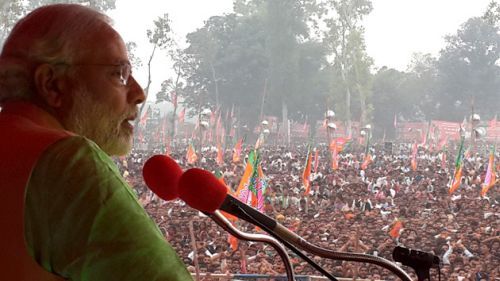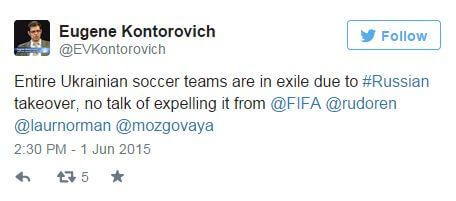Today’s Top Stories
1. Hamas continues cracking down hard on ISIS supporters. But if ISIS popularity continues to rise in Gaza, it could make for some interesting bedfellows, according to the Financial Times (click via Google News).
Some regional analysts now speculate that, were Isis’s influence to expand further in Gaza or Egypt’s adjoining Sinai peninsula, Hamas could end up forging a common cause — openly or otherwise — with either Israel or Egypt, whose military government it also despises.
“There might be indirect and undeclared co-operation between Hamas and Egypt, and between Hamas and Israel,” Yoram Schweitzer of Tel Aviv’s Institute for National Security Studies wrote in a paper about Isis in Gaza published last week.

2. The Washington Post‘s Lally Weymouth interviewed PA Prime Minister Rami Hamdallah. She pressed Hamdallah on Palestinian precondition for peace talks.
I’d like know more about the reassurances Hamdallah says the US gave the PA about resuming peace talks after an Iranian nuclear deal is reached.
3. A Hamas-affiliated journalist writing in a Hamas-affiliated newspaper called on the group to hold negotiations with Israel. According to the Jerusalem Post:
He said that Hamas could negotiate with Israel over specific issues concerning the Gaza Strip without making political concessions, such as recognizing Israel’s right to exist.
Al-Sawwaf made the call in an article published in the Hamas-affiliated online newspaper Al-Resalah. The article is entitled, “Why should there be no negotiations?”
It was the first time that a leading journalist with close ties to Hamas had come out in favor of negotiations with Israel.
Israel and the Palestinians
• Palestinian activists got into tiff with New York Times correspondent Jodi Rudoren. Describing the BDS movement, Rudoren correctly wrote:
The founding document of the Boycott, Divestment and Sanctions movement includes a reference to Palestinian refugees’ right to return to their homes inside Israel proper, and some of its leaders call for a single state between the Mediterranean Sea and the Jordan River. Most Israeli Jews, as well as many outside experts, see either such a one-state solution or the return of all refugees and their descendants as a demographic death warrant for Israel as a Jewish state, which is how it was founded in 1948.
You can see sturm und drang on Twitter after one Palestinian journalist didn’t quote Rudoren accurately . . .
• India announced that Prime Minister Narendra Modri will visit Israel in the near future. No date has been specified, but it will be the first visit by an Indian head of state to Israel. The Hindustan Times suggests the trip might take place in November, while the Times of India wrote:
Modi’s visit to Israel is almost a foregone conclusion. There aren’t many world leaders he refers to as “my friend”, which is a regular prefix he uses for Israeli PM Benjamin Netanyahu.

• Germany’s foreign minister, Frank-Walter Steinmeier, wrapped up talks in Jerusalem with Israeli officials. He’s continuing on to Gaza, though he won’t be meeting with anyone from Hamas. Both Israel and Hamas denied that Steinmeier is mediating a deal to release Palestinian prisoners for the bodies of IDF soldiers killed during Operation Protective Edge.
• CNN: Israel’s Knesset includes more women than ever before.
• Things that make me go hmmmm: It looks like IDF guidelines will crack down on social media but ease up on marijuana.
Around the World
• Times of Israel: Disgraced FIFA executive Jack Warner, who already blamed “Zionism” for the soccer scandal, was now called out for using fake news in his defense. After discovering that The Onion was a satirical web site and that the 2015 Summer World Cup doesn’t exist, Warner removed the video from his YouTube channel and replaced it with an Onion-free version. Warner wasn’t fast enough: Other bloggers saved and re-posted the original video.
By the way, Zionists South Africa confirmed paying Warner $10 million in 2008, two years before hosting the 2010 World Cup.
• Light earthquake hits town near Iran’s Bushehr nuclear plant
Commentary/Analysis
 • B’Tselem’s executive director, Haggai El-Ad, got op-ed space in the New York Times to discuss voting rights for Israelis and Palestinians in the West Bank.
• B’Tselem’s executive director, Haggai El-Ad, got op-ed space in the New York Times to discuss voting rights for Israelis and Palestinians in the West Bank.
The hole in El-Ad’s argument is that Palestinians do have voting rights, and the reason they’re not holding elections is because Hamas and Fatah remain at loggerheads. That’s an internal Palestinian problem, of course, but it’s so much easier to blame Israel:
To be sure, after the Oslo accords were signed in 1993, Palestinians in the occupied territories got to cast ballots for some institutions of their own. But Palestinian independence never came to pass, and the interim partial autonomy established in its stead underscored how “temporariness” is abused while ultimate control remains with Israel.
• Even if Bashar Assad is toppled, Hezbollah’s too entrenched in Lebanon to be dragged down too, argues Yoav Stern.
• According to Johns Hopkins University’s Dr. Christina Lin, China may be a more constructive broker for Mideast peace than the west.
• Tweet of the Day, courtesy Eugene Kontorovich
• Here’s what else I’m reading today . . .
– Smadar Perry: When the political game reaches the soccer field
– Ben-Dror Yemini: BDS is a threat to Israel’s very existence
– Tony Badran: Obama will even defend anti-Semitism to spin his Iran deal
– Daniel Gordis: Israel’s president sings a different tune
– Seth Frantzman: Success and pitfalls of Palestinian anti-normalization
– Yossi Klein Halevi: Navigating existential divides
– Professor Efraim Inbar: The European peace offensive
– Faisal Abbas: Is it called ‘terrorism’ or ‘violent extremism’?
Featured image: CC BY-NC flickr/Gregor Gruber with additions by HonestReporting; Hamdallah CC BY-SA Wikimedia Commons; Modi CC BY-SA flickr/Narendra Modi;
For more, see yesterday’s Israel Daily News Stream and join the IDNS on Facebook.


